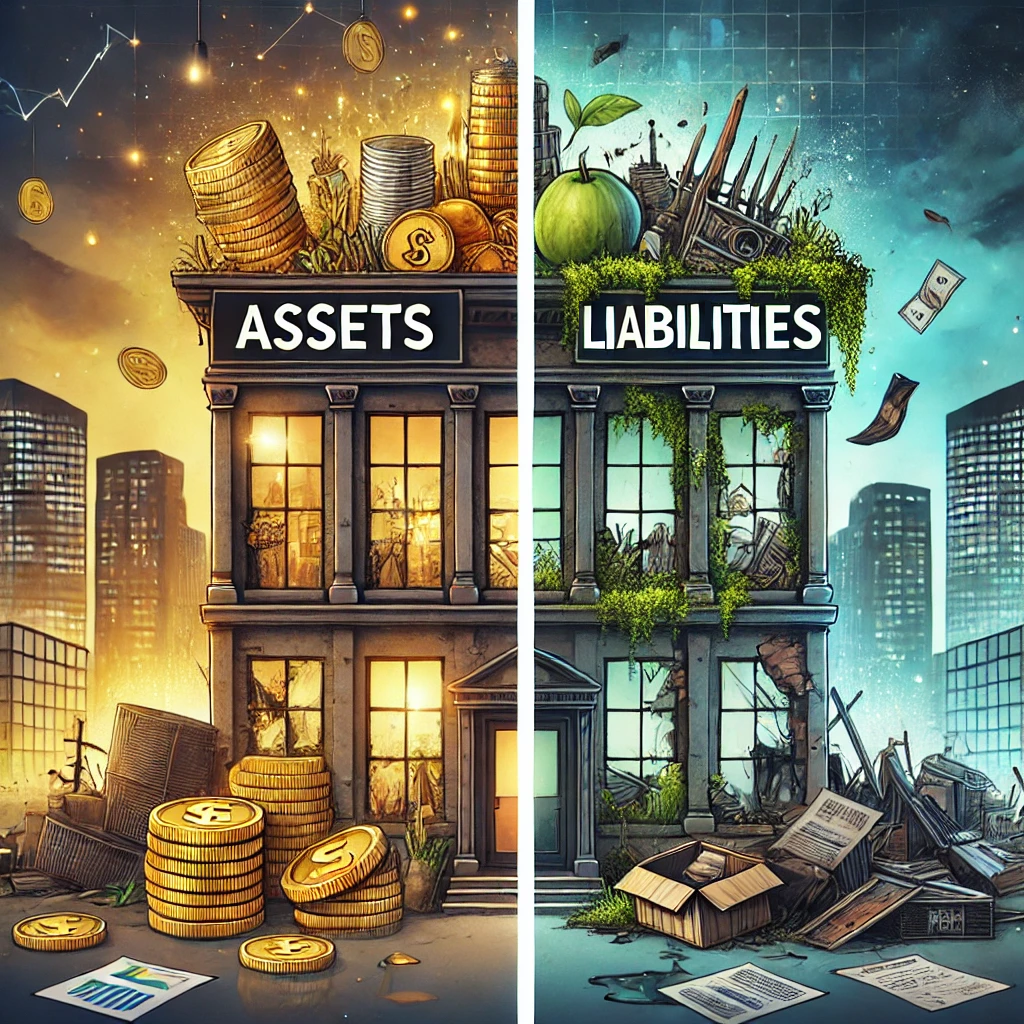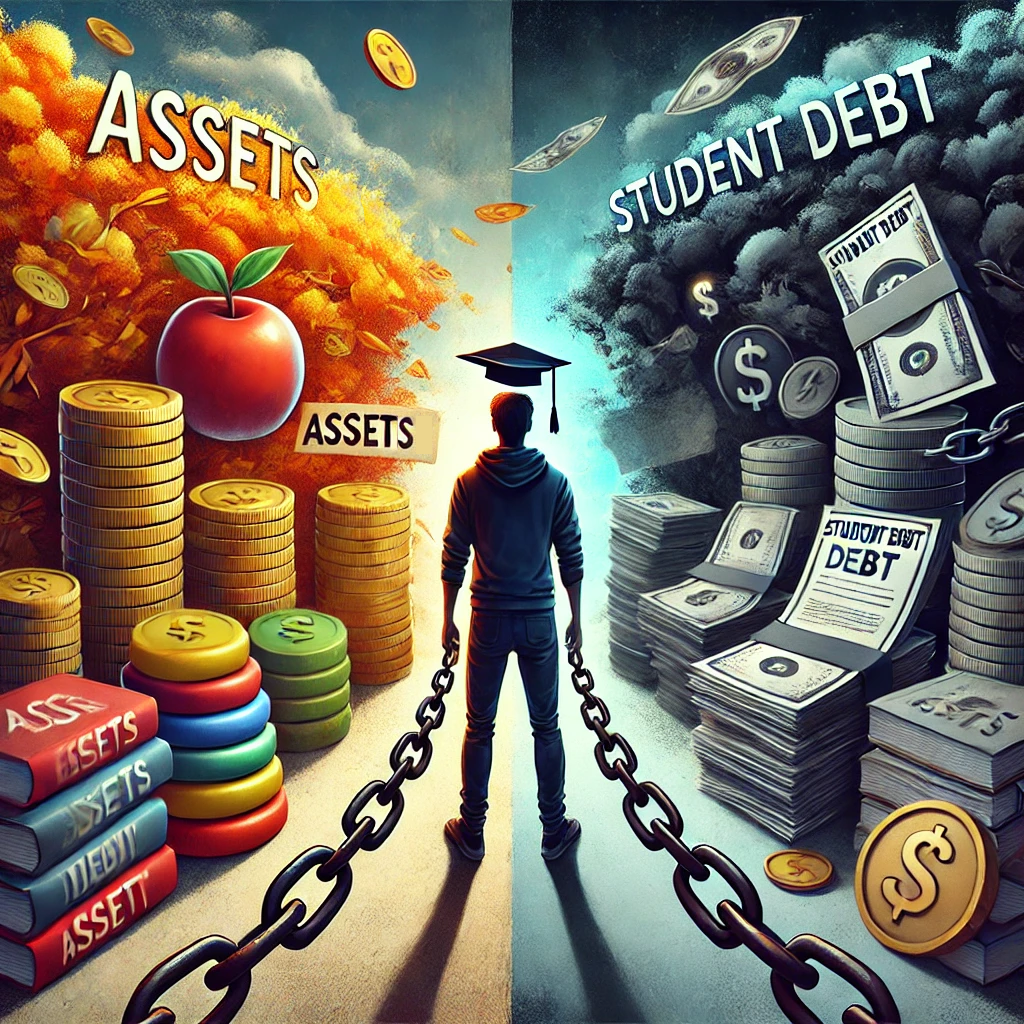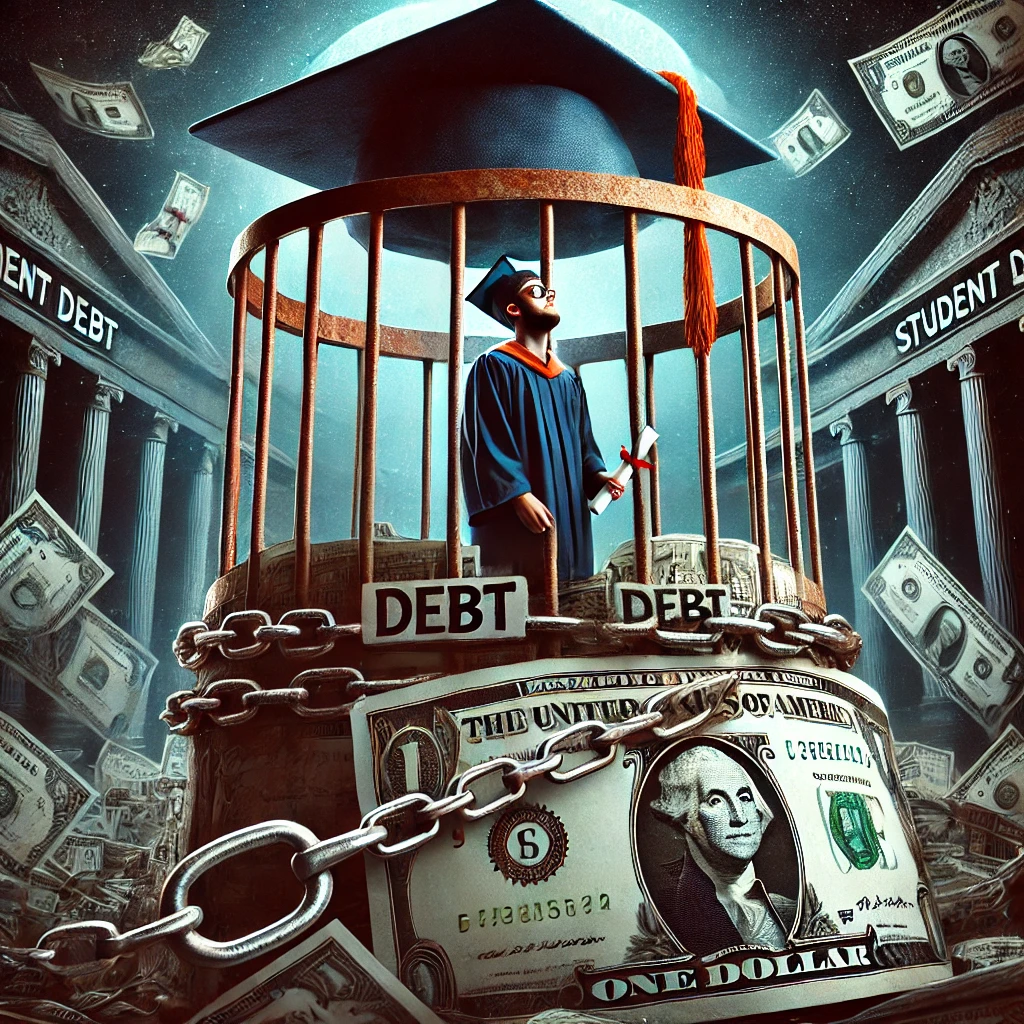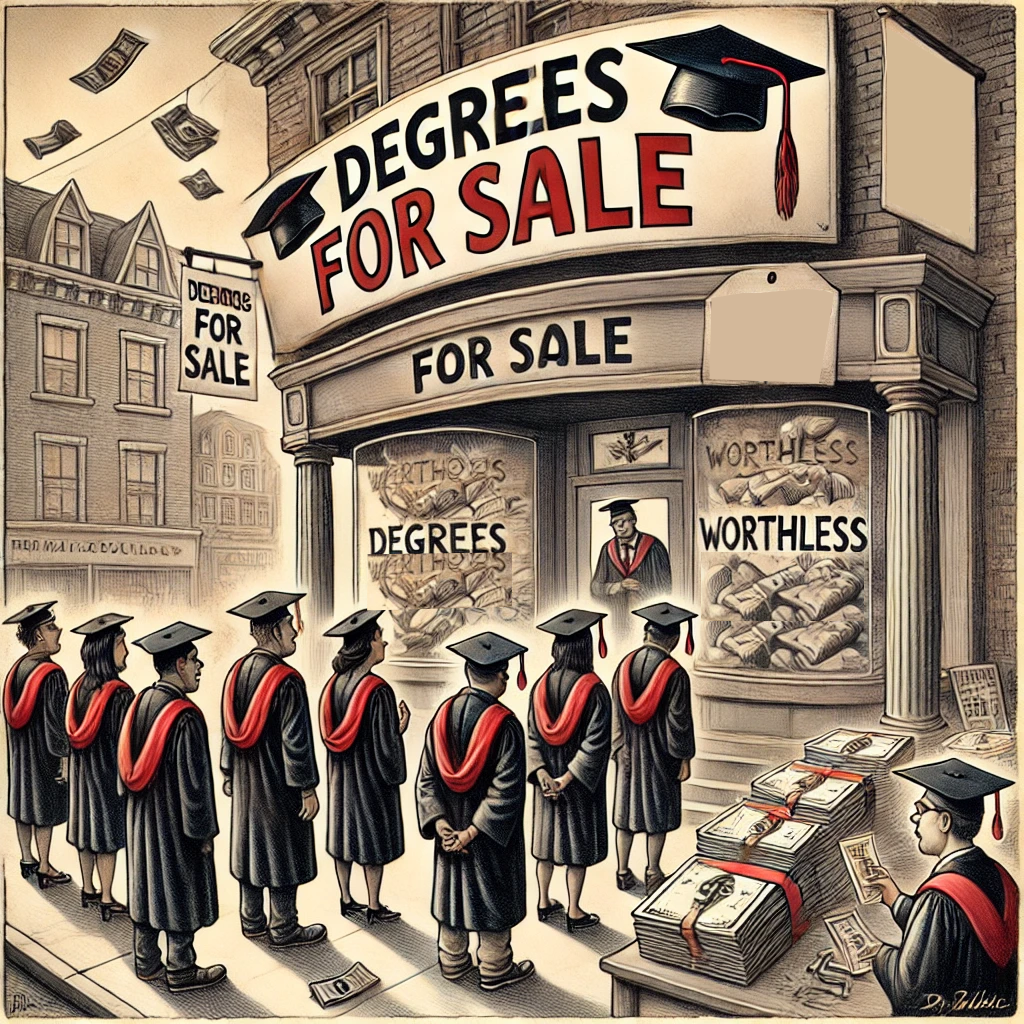Corporations like Koch Industries and Trane Technologies have been exploiting the “Texas Two-Step” bankruptcy strategy to shield themselves from liabilities, raising a provocative question: if corporations can use this legal loophole to protect their assets, why can’t individuals burdened by student debt do the same? And beyond that, why aren’t the educational institutions and loan programs that profited from failed promises held accountable?

The Texas Two-Step allows a company to divide itself into two entities: one assumes liabilities while the other retains assets. The liability-laden entity declares bankruptcy, shielding the parent company from financial consequences. This legal maneuver lets corporations escape responsibility while continuing to thrive. If this strategy can protect businesses, why shouldn’t individuals have access to a similar mechanism to escape crushing debts?

A Texas Two-Step for Borrowers
Imagine a student borrower overwhelmed by $100,000 in loans. If they could use a version of the Texas Two-Step, they might spin off their loans into a separate legal entity, allowing it to declare bankruptcy while they move forward financially intact. This would protect their income, savings, and ability to build a stable future.
But the conversation shouldn’t stop there. If an educational institution or loan program provided the funding for an “education” that fails to produce economic returns, why shouldn’t those institutions be held accountable for delivering a product that doesn’t work? Colleges and universities market their degrees as gateways to better jobs and financial security. When those promises go unfulfilled, students are left with unmanageable debt and no path to relief.

Accountability for Education Providers
Corporations using the Texas Two-Step argue they are resolving claims fairly while protecting their operations. Yet when individuals struggle to pay off student loans for degrees that fail to yield viable careers, the burden falls entirely on the borrower. The educational institutions that promised success—and profited from tuition fees—face no consequences for failing to deliver on their promises.
If a company sold a defective product, it could be sued for failing to meet basic standards. Why shouldn’t the same apply to educational institutions? If a college accepts tuition and leaves graduates with degrees that fail to produce economic opportunities, it should share responsibility for that failure. Similarly, loan programs that fund such educations without adequate safeguards should bear some accountability.

Breaking the Double Standard
The disparity between how corporations and individuals are treated is stark. Companies can restructure their liabilities and continue operating, but individuals have no equivalent tools. Even worse, bankruptcy laws often exclude student loans, leaving borrowers trapped regardless of financial hardship. This double standard protects the powerful while punishing the vulnerable.
Allowing borrowers to discharge student debt, especially when their education fails to produce a viable career, would create a more equitable system. If institutions and lenders knew they could be held accountable, they might think twice about pushing predatory loans or marketing degrees without proven economic value.

A Path Toward Reform
If corporations can use legal strategies to shed liabilities, individuals should have access to similar protections. More importantly, the responsibility shouldn’t end with borrowers. Educational institutions and loan programs must be held accountable for the outcomes of the education they sell. If a degree fails to produce tangible results, the burden shouldn’t rest solely on the student who was promised success. At a bare minimum all student loans should be offered at zero percent interest. Nobody goes to college simply to acquire debt.
It’s time to reform bankruptcy laws and demand accountability from institutions that profit from failed educational outcomes. A fair system would give borrowers the tools to rebuild their financial lives while ensuring education providers are held to the same standards of performance as any other business. If corporations can escape their liabilities, individuals deserve the same opportunity—and so much more.





